Fiction
Nonfiction
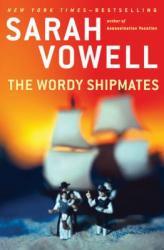
This book takes a look at the lives of the early Puritans that crossed over to make a better life for themselves in America. While that topic doesn't immediately scream, "Read me!" I was forced to read it for school, and I actually really enjoyed myself. The author, Sarah Vowell, has this dry sense of humor that makes her long explanations about the technicalities of the religion and of how society worked back then interesting while still informing you of the topic and the message she is trying to put across. I think whether I would recommend this book depends on who wants to read it. If you are someone who is looking for a non-fiction novel that gives a different perspective to what is generally taught in history classrooms, I say go for it. If not, you might still enjoy it simply because the author is hysterical, but that might not be the case if you are not interested in learning about the actual topic.
Reviewer: Grade 11
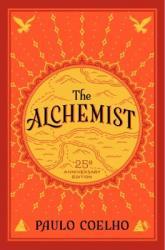
I first picked up this book when I was in maybe 6th grade and I absolutely hated it, I had no clue what it was about and why it was an "adventure" book that didn't really have a lot of action in it. Having picked up this book again this year (and actually finishing it this time) I can honestly say this story made me want to reevaluate how I have lived my entire life. The story follows a boy named Santiago as he searches for his personal legend, in other words, the reason he is alive, his purpose. This is a book that makes you want to go out and chase your dreams no matter what, and it is beautifully written. The novel takes you through the ups and downs of life and proves that sometimes your hard work is worth it in the end, whether you accomplish what you set out to do out not. I think this is a book where the messaged can’t be fully realized until your a little bit older, but to anyone struggling with what they want to do in life or even just where to start, this book is amazing, it made me feel like anything is possible. Just read it, I promise it’s good.
Reviewer: Grade 11
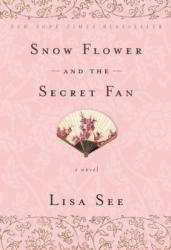
In the midst of desperately trying to find a historical fiction novel to read for my English class, I picked up Lisa See’s book and immediately fell in love. This book is told through the main character, Lily, as she recalls her past as an older woman. As a young girl, Lily was promised to her laotong, Snow Flower. To be a laotong in China means to be best friends, to be closer than sisters, and to never leave each other’s sides. As Lily grows up throughout the book, she recalls her stories of love and loss that shaped her entire life, most importantly in regards to Snow Flower. This book gives an important look into the lives of woman in early China, about the standards they were held to as far as their appearance goes, and the strict rules they had to follow just to live a "fulfilled" life. For anyone who is interested in learning more about the Chinese culture or simply reading a beautiful story of love and friendship, I highly recommend. (Not gonna lie, I cried at the end, this book is actually amazing).
Reviewer: Grade 11
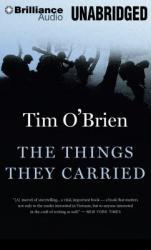
In this book, Tim O’Brien gives a very blunt and realistic view
of the Vietnam War, not only including stories from when he served himself, but also explaining what happens to the soldiers when they finally do get to go home. I honestly would recommend this book to anyone who is willing to read it. While we love and respect our military for saving our country, I think it is very important to also learn about what actual happens out on the battlefield, about the little decisions that can change everything in the heat of battle, and most importantly the guilt that comes with killing your fellow man. My father served in the military for 25 years and to me this book is just so important, it tells stories of war that do not always have a happy ending, or stories that do not necessarily end with the good guys triumphing over all evil.
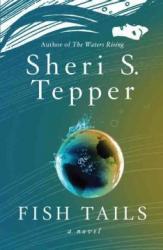
I decided to choose the book because it looked like it would tell a great story and it did. I liked the book due to its great lessons inside about the imperfections of our minds, but the greatness of them too. The part I enjoyed most was the journey f the main characters and how they didn't change their personalities and stayed focused on the topic. The part I didn't really enjoy was that the story went kinda slow. The book was pretty predictable, but the lessons and thoughts behind you need to think more about to get, so it was still entertaining to read. It was an amazing book to read and I definitely recommend it.
Reviewer Grade: 10

Having been a Christian for some time, I was familiar with the name Philip Yancey. I knew he often wrote books about Christianity and how those of us in the faith should examine some of the more challenging topics of our belief.
When I picked up Rumors of Another World from a friend, I was expecting an examination of the afterlife promised us in God's Word. Part of me was planning to use this book as a bit of research for my own fictional writing, or at least to give me ideas on how to incorporate a heavenly realm into it.
In the end, this book was not what I expected.
It has been a long time since I've read any Yancey, but I don't think this is his strongest work. My primary issue with it is that it tries to speak to too many audiences. If it either focused on trying to convince atheists and other scientific-minded individuals that there is a heaven and a hell or helping believers enforce their apologetics on the topic of the afterlife, it could have worked. Instead, it (almost ironically) sits in the middle of these two worlds, never diving deep enough to make a solid point about anything.
Furthermore, while I appreciated the anecdotes and quotes from other authors, many of them were reused throughout the book, making the whole narrative seem repetitive and redundant. I mean, I get it: C.S. Lewis is an excellent writer with a ton of great quotes, but there are other Christian authors out there as well. In the end, Rumours of Another World provides a few thinking points for Christians and non-Christians alike, but it never really challenges our deeply held beliefs or leads us into startling, life-changing revelations.
An OK book that breaks down some reductionist arguments, I give Rumors of Another World 2.5 stars out of 5.
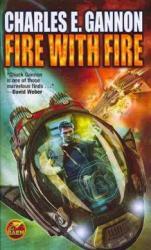
I’m not sure which is more boring in a book: a plot that doesn’t go anywhere, or a main character who is perfect. Unfortunately, Fire with Fire has both. I’ll first start with my qualms about the plot. This story started way too late, as it didn’t get interesting until halfway through.
Even when it did finally get interesting, it suddenly became bogged down in committee. Seriously? Didn’t we learn anything from the Star Wars prequels?
Adding politics to a story about traveling across space merely makes it tedious. This is also not to mention how heavy and clunky the exposition is, with almost every chapter being filled with information that isn’t important, and the jumps between chapters needing way more explanation.
Secondly, let’s take a look at “Mr. Perfect,” Caine Riordan. Aside from the egregious fact that the POV switched between 1st person and 3rd person within most of the paragraphs of his section (with no italics or indication that we were suddenly in Caine’s head), I felt this character was just the author’s way to show how smart he is. With the expansive repertoire of high-value vocabulary words and a character that always knows what to do all the time and has all the correct answers, I ended up not caring about any of it by the end. And I haven’t even mentioned the blatant and pervasive misogyny either.
Even the rest of the supporting cast was so flat and one-dimensional that I probably couldn’t tell you who they were or what their defining characteristics were (aside from that one mysterious guy who LOVED olives and feta cheese). Most of the time I was reading this book, I kept wondering, “Wait . . . what?” as what seemed to be major plot points were introduced then almost immediately forgotten until hundreds of pages later. I’m not sure how this book managed to get a series tacked on to it, or how it was even nominated for a Nebula Award, but it gives me encouragement that I could write something way better than this.
Antiquated sci-fi tropes in a recently written book, I give Fire with Fire 2.0 stars out of 5.
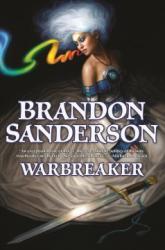
For the last few years, Brandon Sanderson’s name kept coming up amongst my writer friends. I had never heard of him, but they had been fans of his writing for some time. In my goal to read all the unread books I own, I found that I had obtained a Brandon Sanderson book many years ago as a prize during my first National Novel Writing Month. Even with the daunting page count, I decided to give Warbreaker a read. All I can say is that it was refreshing to finally read a fantasy book written by someone who genuinely knows what they’re doing.
I’ve read a lot of books recently that I would consider “amateur,” but Sanderson proves he’s a professional in this tightly written book. From incredibly interesting and entertaining characters to expertly placed foreshadowing to a fascinating magic system, Warbreaker is fully original while also maintaining the tropes and structure of a high fantasy novel. The twists in the plot continued to grab my attention as the mystery surrounding these characters unfolded. As I read, I had a few qualms with minor points in the story, but Sanderson managed to quash these negative points by the end of the book.
I have stayed away from the fantasy genre for a long time because I know how lengthy some of these book series can be, and I didn’t want to become invested in something that might not even reach its penultimate conclusion.
Fortunately, Warbreaker is well-encapsulated in its own, standalone story.
Sure, there are hints at what the future may hold for some of these characters, but nothing was particularly pressing or “cliffhanger-ish” in this book. Either way, consider me a believer in the fantasy genre, and in Sanderson particularly. Maybe now it’s time I started to dive into his other works.
An original and highly entertaining fantasy story, I give Warbreaker 5.0 stars out of 5.
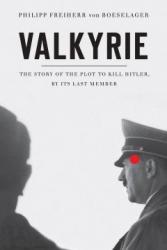
I first gained awareness of “Operation Valkyrie” when the film starring Tom Cruise, Valkyrie (2008), was first released. It makes logical sense to me that not all Germans involved in the war were Nazis, and not all Germans agreed with Hitler’s tactics. It is then the logical conclusion that some of them would attempt to assassinate the leader who had brought their country into a sweeping, global conflict. While this assassination attempt failed, I was still curious about the inner-workings of the plot and the people who would go so far as to try and kill Hitler.
My expectation of this book was for it to be an in-depth analysis of the many facets of the operation. From Hitler’s security concerns to the backgrounds of the lives of the individuals involved, I was expecting this book to be a non-fictional examination of the assassination that never succeeded. Instead, I was a little surprised to read the personal account of one of the conspirators of the assassination. The whole narrative was quite short (not even four and a half hours long), and left me wanting more. While this first-person account was entertaining, it wasn’t quite enough to satiate my desire for knowledge.
Because this book was only the translated account of Philipp Freiherr von Boeselager, there were plenty of details about his life and the life of his brother, but not much else. I was hoping his story would be the structure on which a deeper narrative would develop, but it remained the pure and unadulterated memoir of this single individual. I can’t fault the book for being the simple story of a German who wasn’t going to stand around and let Hitler ruin his country, but if there were a historical “wrapping” added to it, I probably would have gotten a lot more out of the book.
A simple story about a failed assassination attempt, I give Valkyrie 2.5 stars out of 5.
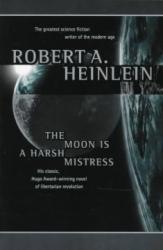
Certainly well ahead of his time, Robert A. Heinlein remains one of the definitive writers of the science fiction genre, even today. In The Moon is a Harsh Mistress, Heinlein covers such topics as artificial intelligence, extraterrestrial colonization, and interplanetary warfare. Even today, most of these subjects are accurately depicted in the narrative, even if some of the technology has advanced past where it was thought to be in 1965. Part of me is almost jealous at Heinlein’s ingenious use of Earth’s gravity well, and I know any attempt I might make to replicate the idea will merely seem derivative in comparison.
As is the case with some of his other works, Heinlein makes many socio-political statements via his writing. His stance on taxes, revolutions, and independent governing bodies is a critical section of the plot in The Moon is a Harsh Mistress, and I can certainly see the theoretical benefits he puts forth in this context. That being said, his views on polygamy and polyamorous relationships are certainly on display again, with his previous work, Stranger in a Strange Land exploring these themes in greater detail. I can only assume the "free love" culture of the 1960's shaped these opinions.
Overall, the book wasn’t quite what I expected. The initial chapters made me hope the plot would center on the relationships between man and artificial intelligence (AI). If anything, AI is shown to be a powerful tool that can influence society in ways we can’t even begin to comprehend. At the very least, the main character was quite entertaining, if not hard to understand at times with his “accent.” If we do eventually colonize the moon, I can hope we do so peacefully and in a way that doesn’t lead to an uprising of its native inhabitants. After all, I do like living in a Colorado Springs devoid of meteoric bombardment.
A well-thought out sci-fi story decades ahead of its time, I give The Moon is a Harsh Mistress 4.0 stars out of 5.
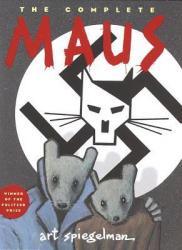
Maus is a two-part graphic survival story of World War II in Auschwitz. It is a true story of Art Spiegelman's father, who was a Polish Jew and was put into Auschwitz, one of the biggest concentration camps in Nazi Germany.
The comic book style is an amazing way to learn history, as it enforces themes through images and tells a story rather than spitting facts, like some history books do. The author portrays different nationalities as different animals, which stands as an ongoing theme in the book: The Jews are the mice and the Nazis are the cats. This makes for an easy relation between the two (cats hunt mice). I am not a huge fan of learning history for the sake of learning history, but I adored this book. I found it intriguing on a very personal level, but also extremely informative. I strongly recommend Maus.
Reviewer Grade: 11
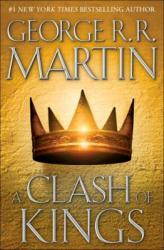
A Clash of Kings is the second book in Martin's A Song of Ice and Fire. After adoring the first book, I was not at all disappointed with the second. The immensely complex fantasy world only continues to grow and develop in this book, as do the characters. George R. R. Martin perfectly juggles all the different storylines, making them all interesting, suspenseful, and fascinating. His characters are so 3-dimensional that characters the reader hates in the first book begin to be shown in a new light. I very strongly recommend this book to anyone that read A Game of Thrones. Every paragraph in this book is so richly embellished and detailed that as I read these books, I felt like I was learning the history of another country.
Reviewer Grade: 11
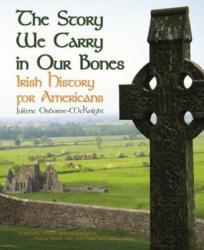
I checked out "The Story We Carry in Our Bones: Irish History for Americans"
to do research on Irish culture for my novel. It was an extremely informative book that describes what life was like for ancient Irish people and I'd highly recommend it if you would like to learn more about this fascinating culture.
Grade: 11
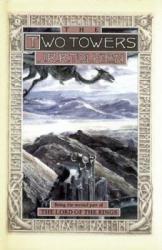
The second installment in J.R.R. Tolkien's "Lord of the Rings" trilogy, "The Two Towers," takes up the challenge of doubling up on the success of Tolkien's previous novel. This is a daunting task, as fans clamored to the brilliant and wonderfully crafted masterpiece of "The Fellowship of the Ring". Though after having read and thoroughly reflected upon Tolkien's most recent work, I am pleased to say that he was able to exceed my expectations.
The novel begins directly where the last left off, with Frodo Baggins having been taken hostage by a group of vicious orcs. In spite of this setback, he is still on a quest to destroy the mystical ring, but as is to be expected in such a story, his journey is neither simple nor straight-forward.
Along the way, Frodo makes encounters with a number of new characters, ever-diversifying this creative and beautifully crafted story. Their journey stands witness to a number of conflicts, wars, and battles, with various different social groups across the realm taking part. Through it all, as Frodo inches closer to his destination, the faded shadow of Mordor- where the Dark Kingdom and Sauron await- gleams in his foresight.
I originally picked up this novel immediately after the last, and am glad to have read it. Some may not enjoy the novel quite as much, due to the fact that the language is very particular and can sometimes present readers with a bit of a learning-curve. However, the story manages to continue to enhance the rich narrative setup in the previous novel, and does a wonderful job with transitioning the story forward. Tolkien’s colorful and imaginative lore’s, histories, and descriptions truly make this novel a must read!
Reviewer’s Grade Level: 10
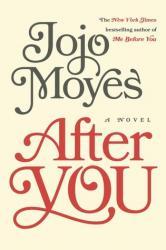
See, here's the problem: I wasn't that enamored with the first book in this series (Me Before You). It just didn't wow me. So with that book as a jumping-off point, this book didn't stand a chance at getting above 3 stars. Still, it was pretty good. The ending was super cheesy, though, which tempts me to give it 2 stars. But hey, I'm feeling generous, so 3 stars it is.
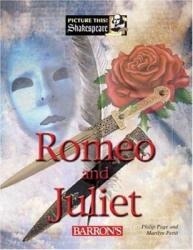
As is likely the case with many readers, I was assigned to study the play "Romeo and Juliet" in a high school English class. While it's true that I was led on to read the book out of obligation, I ended up forming some pretty spirited opinions on the novel. I definitely was not engaged in this read, but even still, am able to respect its excellence in the context of Shakespeare's time.
As a reader, you can tell that the language used is vastly different from that of the common, English vernacular. For this reason, it can sometimes be a challenge to understand what is going on in the plot, especially since the story is told through the lens of a play. Before attempting this read, I would certainly brush up on some basic play terms, to grasp a better understanding of the composition of such a work.
Another factor contributing to the difficulty of this read is Shakespeare’s use of Iambic Pentameter, a rhyming scheme ideal for sonnets where three sets of rhyming quatrains and two lines of rhyming couplets are alternated. I found it truly impressive that Shakespeare manages to devise these rhymes with so much detail and insight. To go through with reading this novel, I would have to suggest to understand the rhyming scene of Iambic Pentameter, as doing so allows you to come to terms with a greater appreciation for Shakespeare’s work.
I found the plot itself to be a bit too inconstant. While at first the novel seems somewhat believable, the ending turns totally wild and unpredictable. I don’t mean to critique Shakespeare’s work, as his play was truly revolutionary for its time, but to a 21st century teen, this novel may not be the most enjoyable.
In terms of the themes, the novel excels with powerful and proactive lessons.
Reflecting on the plot, and Shakespeare’s use of literary devices such as foreshadowing, can lead to meaningful conversations and analyses about life, love, and happiness.
Overall, I would pin my recommendation on this book, but only if you take the time to understand the niche delicacies of Shakespeare’s writing. At face value, the novel may not seem the most exciting or engaging to the reader, but by appreciating the literary masterpiece found in Shakespeare’s work, you’ll definitely enjoy the read!
Reviewer’s Grade Level: 10
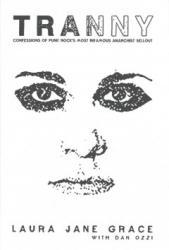
I love this book with all my heart. As a longtime fan of Against Me!, it was so exciting to read about how the band started off, the positive and negatives of touring and recording, the growth, decay and rebirth of the band and how the entire time the primary figure that has driven Against Me! from the very beginning was struggling with her identity. I'm utterly in love.
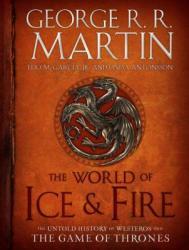
George R.R. Martin's "A Song of Ice and Fire" trilogy took the book-industry by storm, selling millions of copies and reinventing the fantasy genre. Most would agree that Martin's vast success can be attributed to his holistic storytelling approach, incorporating rich lore and imaginative histories.
Martin continues to cultivate this project with his next work, "The World of Ice & Fire: The Untold History of Westeros and the Game of Thrones" by Elio M. García Jr., George R.R. Martin, and Linda Anntonsson. The novel takes up the task of expanding on these histories, and presenting readers with a deeper knowledge of the ancient tales of Westeros. Suffice it to say, readers were pleased when they learned of Martin's decision to further detail this flavorful world of Ice and Fire.
The first portions of the project focus primarily on the histories before Aegon the Conqueror and the Reign of Targaryen Kings. As such, readers are given insightful details on the centuries of Westerosi history, involving major houses, their leaders, and the players in the Game of Thrones.
The book progresses to further recount the history of the Targaryen household, and its reign in Westeros. For book readers and show watchers alike, this section is staggering- with an enormous amount of detail on the countless leaders who have all worked in succession to paint the colourful history of Targaryen rule.
Final portions of the book are dedicated to specific regions in Westeros and their cultural background. It is quite spectacular to read through the rich accounts of history, and to diversify your mind learning about the many peoples of Westeros. Each culture is different from the other, with their experiences having shaped the core of their identity as a people. Martin conveys these rich cultural contrasts in his work, and it is a pleasure as a reader to learn about them.
While a majority of this information is passed down from the Song of Ice and Fire trilogy, this book offers a plethora of eye-opening illustrations. I can honestly say that the art brought a whole new facet of imagination to my experience as a reader, and brought new light to many familiar characters, locations, and landscapes across Westeros.
It's true that this book is only written in part by Martin, and while this is noticeable as a reader, I felt that the other authors did a fantastic job with carrying on Martin's vision. Their contributions seem to have shaped the book in so many positive ways, and along with Martin, their work has brought an even more colorful depiction of the world fans have come to love so dearly.
If I were to file a complaint about this novel, I might have to say that at times, it felt more like a textbook than a fantasy novel. The dense collection of information is certainly something I appreciate as a reader, but the book may not appeal to all types of readers. I would recommend the novel more to readers of ASOIAF, rather than those who have simply watching the 'Game of Thrones' TV series.
Overall, if you're familiar with the Westerosi universe, and are a prior fan of Martin's work, I certainly think that this book will strike your enjoyment. Martin presents readers with countless rich histories and depictions; and coupled with fantastic art from more than a dozen skilled artists, this novel makes for a truly unforgettable read!
Reviewer's Grade Level: 10
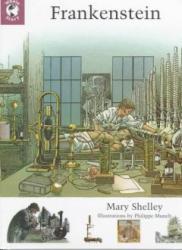
Frankenstein was a disappointment to me. As per the Romantic period, this novel used lots of scenes in nature to explain the characters’ emotional states. I do not mind a few good cries in a storm, but this novel borders on incessant outdoor melodrama. I decided to disregard both the plot and the setting in a vain attempt to enjoy the novel. I would only focus on the characters. As this was written by a female author, I looked forward to the female characters, which were awful. One, Justine, is a servant and seems only to exist in order to die. Elizabeth, who also seems to share this quality, is regarded as an object to be owned in a creepy incestuous manner by her cousin; she is apparently superior and virtuous only because of her noble birth. So, I dismissed the female characters to focus on the males, none of which were believable. Victor, his friend Henry, and his monster all were overly emotional, and they inspired no sympathy from me. With no likable characters and emotions running everywhere, I would only read Frankenstein if required.
Reviewer Grade: 9
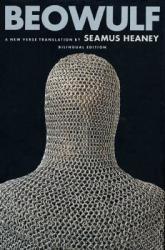
Beowulf is a classic heroic epic written one thousand years ago; I read the version that Seamus Heaney translated into modern English. This translation was excellent, managing to balance the original style and rhythm with a clear and understandable tone. Beowulf is a traditional hero. As a result, some of the plot points are fairly predictable. Nevertheless, I would recommend this epic poem to anyone who enjoys Tolkien or other fantasy series. Reading Beowulf, it is easy to see where more contemporary authors got their inspiration.
Reader Grade: 9


